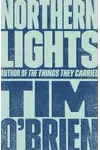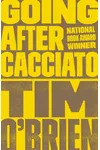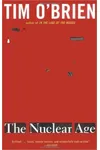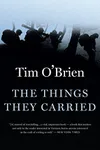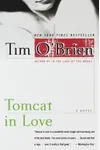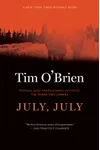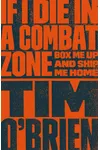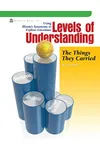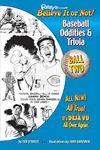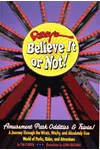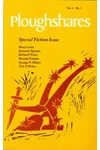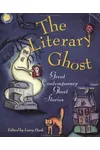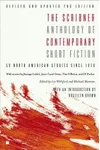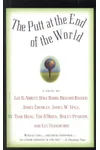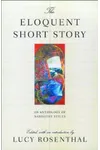Picture an American storyteller who turned the chaos of war into haunting, heartfelt tales—meet Tim O’Brien! Born in 1946, this Minnesota native transformed his Vietnam War experiences into literary gems like the National Book Award-winning Going After Cacciato. With a knack for blending fact and fiction, O’Brien’s stories dig deep into the human soul, making readers laugh, cry, and ponder long after the last page.
His work isn’t just about battles; it’s about the weight of memory, the blur of truth, and the stories we tell to survive. Ready to dive into O’Brien’s world? Let’s explore the man, his masterpieces, and why he’s a literary legend.
The Making of Tim O’Brien
Tim O’Brien grew up in small-town Austin, Minnesota, where books were his escape from a post-World War II world. A political science graduate from Macalester College, he was drafted into the Vietnam War in 1968—a reluctant soldier whose experiences would shape his life’s work. After serving, he pursued graduate studies at Harvard but found his true calling in writing, inspired by the raw emotions of war and the need to make sense of it all.
His early career kicked off with If I Die in a Combat Zone, Box Me Up and Ship Me Home, a memoir that set the tone for his unique style. O’Brien wasn’t just recounting events; he was crafting stories that felt true, even if they weren’t always factual. This approach became his signature, pulling readers into his world.
Tim O’Brien’s Unforgettable Stories
O’Brien’s books are like conversations with a wise, witty friend who’s seen too much. His breakthrough, Going After Cacciato (1978), won the National Book Award for its surreal tale of a soldier chasing a deserter through a dreamlike Vietnam. It’s a wild ride—part war story, part fantasy, all heart. Then there’s The Things They Carried (1990), a collection of linked stories that’s practically required reading for anyone curious about war’s emotional toll. From the literal weight of a soldier’s gear to the metaphorical burdens of guilt and fear, it’s O’Brien at his finest.
His novel In the Lake of the Woods (1994) shifts gears, blending mystery and psychological drama as it unravels a politician’s dark past. Meanwhile, Tomcat in Love (1998) shows O’Brien’s lighter side, with a darkly funny take on obsession and heartbreak. His style—conversational, layered, and unflinchingly honest—makes every story feel personal, as if he’s sharing a secret just with you.
What sets O’Brien apart is his “metafiction” approach. He blurs the line between truth and invention, challenging readers to question what’s real. War, love, loss, and memory weave through his work, delivered with a voice that’s both tender and sharp. It’s no wonder his books are studied in classrooms and cherished by readers worldwide.
Why Tim O’Brien Matters
Tim O’Brien’s impact goes beyond awards and bestseller lists. His stories humanize war, giving voice to soldiers’ struggles and the messy truths of human nature. As a professor of creative writing at Texas State University, he’s shaped countless young writers, passing on his belief that stories can heal and connect us. His work resonates across generations, reminding us that the best tales don’t just entertain—they make us feel, think, and remember.
In a world quick to glorify or vilify war, O’Brien’s nuanced perspective is a gift. He doesn’t preach; he invites us to sit with the complexity of it all. That’s why his books remain timeless, speaking to anyone who’s ever wrestled with their own burdens.
- Born: October 1, 1946, in Austin, Minnesota
- Key Works: Going After Cacciato, The Things They Carried, In the Lake of the Woods
- Awards: National Book Award (1978), James Fenimore Cooper Prize
- Fun Fact: He’s a fan of magic tricks and often weaves illusion into his stories!
About Tim O’Brien
Snag The Things They Carried and dive into Tim O’Brien’s unforgettable world of war, truth, and storytelling magic!
